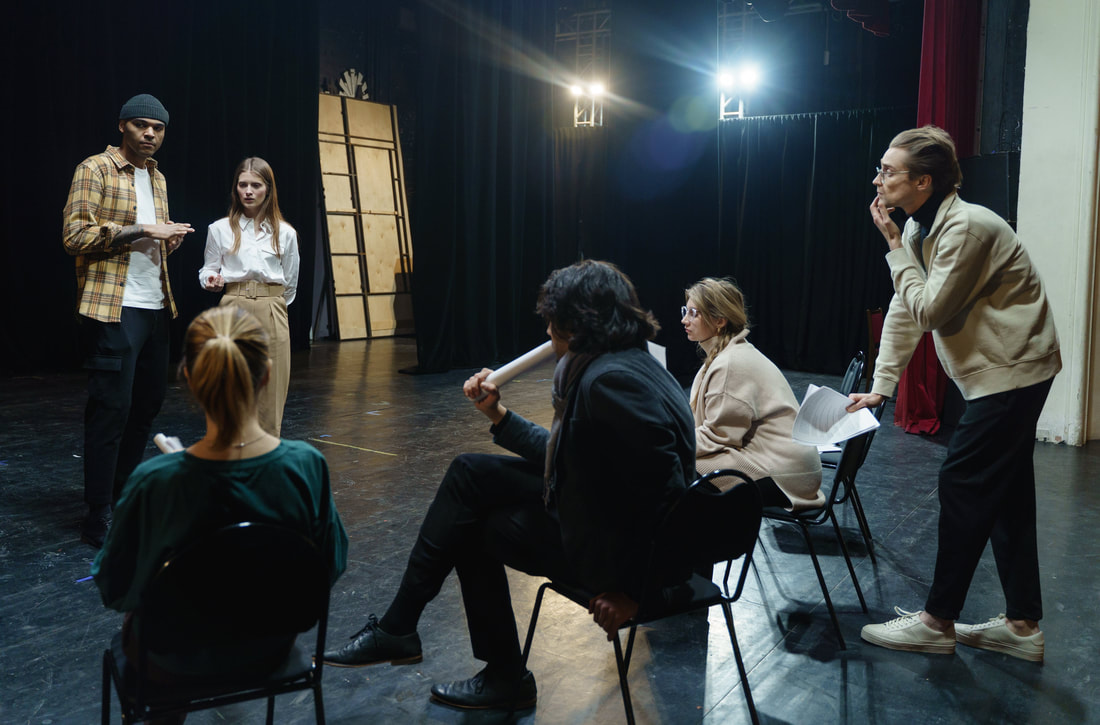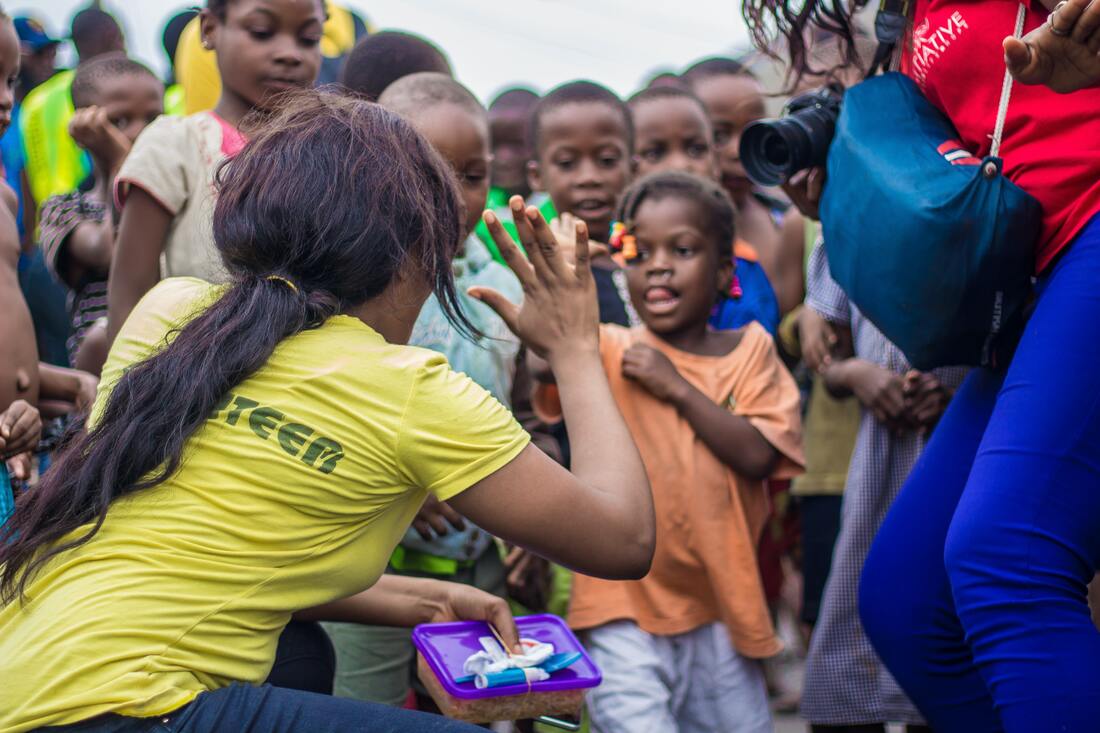|
‘Leadership is influence.’ (John C. Maxwell) It’s one thing to have insight. It’s another thing to exert influence on the basis of that insight. This is often a dilemma for leaders and professionals when seeking to influence change across dynamic, complex systems and relationships. After all, what if I can see something important, something that could make a significant difference, yet I can’t gain access to key decision-makers? Or what if, even if I can get access, they’re not willing to listen? What if people are so preoccupied by other issues that my message is drowned out by louder voices and I can’t achieve cut-through? Early in my career, I worked as OD lead in an international non-governmental organisation that was about to embark on radical change. I’d studied OD at university on a masters’ degree course and, based on that experience, could foresee critical risks in what the leadership was planning to do. I tried hard to get access to raise the red flags but, by the time I met with the leaders, it was too late. They had already fired the starting gun on their chosen programme. My concerns turned out to be well-founded, and the changes almost wrecked the organisation. I agonised for some time over why I’d been so ineffective at influencing their decisions. I learned some valuable lessons. Firstly, the view I held of my role – the contribution I could bring – was different to that of the leaders. I viewed myself as consultant whereas they viewed me as service provider. Secondly, the leaders had become so emotionally-invested in the change they had designed that they reacted defensively if challenged. They saw my well-meaning red flags as resistance rather than as a genuine desire to help. I would need to change my approach. Since then, I have practised building human-professional relationships with leaders and other stakeholders from the earliest opportunity. These relationships are built on two critical factors: firstly, respect for e.g. the studies, training, expertise and lived experience they bring to the table; and, secondly, empathy for e.g. the responsibilities, hopes, demands and expectations they face – both inside and outside of work. Against this backdrop, I’m able to pray, share my own insights and, where needed, advocate a change from an intention and base of support.
12 Comments
‘For me, revolution simply means radical change.’ (Aung San Suu Kyi) I heard a well-known pop psychologist on the radio this week, talking about his new book about how to make your New Year’s resolutions stick. He invited the listeners to buy his book in order to learn more. I didn’t do that, but it did bring to mind a number of things I’ve noticed over the years as I work with people, teams and organisations. I will share a couple of insights here that may be of interest and useful – and I promise not to ask you to buy anything. The first is how hard it can be to make significant and sustainable changes to habitual patterns of thought and-or behaviour. A wise friend, Ian Henderson, illustrates this simply by inviting people to fold their arms. Next, he invites them to fold their arms in the opposite direction. (I found this harder than I had imagined). He goes on to invite them to reflect on what routine they always use to dry themselves after a shower. We are creatures of habit. That’s OK when the routines serve us and-or others well. If, however, people become trapped in, for instance, patterns of tension or stress, if often demands more than fresh thinking, determined effort or will-power to change it. So, here’s the second. Try disrupting the physical context in which it takes place; for instance: meet in a different room or location; use different chairs; sit in different places to where you normally sit; stand up rather than sit down. I worked with a team that felt trapped in conflict. They invited me to help them work through it so I asked that we hold our first meeting where and at the time at which they normally met. When we did so, I asked them where they normally sit, including in relation to each other. (‘Exactly where we are now’). At the next meeting, I changed the time and, before participants arrived, rearranged the room completely, then invited them to sit somewhere different. The shift in group dynamics was remarkable. Disrupting the times and room configuration created enough of a change to enable the team to hold a different spirit, style and type of conversation. This, in turn, helped team members to relax enough to consider and create new possibilities. It released the stuck-ness and enabled a breakthrough of sorts that wouldn’t have been possible by thinking or talking alone. (Like this idea? Look out for my new book…) ‘Action Learning aims to shake you out of the cage of your current thinking.’ (Pedler & Boutall) Action Learning: a method by which someone receives stretching, coaching-type questions from a small group of peers. The aim is to resolve a pressing challenge, a real-life/work issue that has left the person perplexed or stuck. The idea is to leave with actions, practical steps that will help to move things forward. Yet what gets a person stuck in the first place? If it’s a complex challenge, such as that of navigating the intricacies of diverse human relationships, we may become inadvertently caged by our own assumptions. Gareth Morgan commented that ‘people have a knack for getting trapped in webs of their own creation.’ If we don’t know what assumptions we’re making, everything may seem self-evident to us. This is where Action Learning and coaching really can help. If we can engender a spirit of curiosity within ourselves and invite challenging questions from different others, we may discover a door emerging in our previously-unseen cage, experience the agency to push it wide open and step outside to embrace fresh possibilities. It could just change...everything. 'There is no act too small, no act too bold. The history of social change is the history of millions of actions, small and large, coming together at critical points to create a power that governments cannot suppress.' (Howard Zinn) At the heart of coaching generally lays a desire and opportunity for impact and change, a goal that may seem obvious, but one that raises important questions. As coaches aspiring to make a difference in the world, we can find ourselves navigating complex dilemmas. When we work with agents of change in, say, NGOs, charities, churches or public sector organizations, we often seek to empower individuals, teams, and organizations to be resourceful and effective in achieving transformation. One challenge we may encounter is determining the coaching agenda. A Western coaching ethic advocates for giving the client complete control over the agenda, focusing on their chosen goals and boundaries. While this approach seems straightforward, our intention of promoting social change may lead us to contemplate how much influence we should exert on the client’s journey. What if the client's solutions seem unethical, ineffective, or could pose risks to broader social development? Furthermore, when working in diverse cultural contexts, we need to be mindful of differing perspectives on individual autonomy. In some Eastern and Southern cultures, the concept of setting individual goals might not resonate the same way it does in the West. People in these cultures often prioritize the wishes and expectations of a wider group, whether family, team or community, before their own hopes and ambitions. We could risk inadvertently imposing our own cultural values onto the client. The solution often lays in recognizing the significance of context and building a strong and trusting relationship with the client. By understanding the dynamics of power, language and agendas that may emerge between us, we can gain insight into the issues at hand and potential solutions. We become allies, working together to achieve meaningful impact. A critically-reflective process allows us to adapt our coaching practice on route and to challenge our assumptions as we learn and grow. ‘Wait time is making space for authentic learning.’ (Takayoshi & Van Ittersum) A key skill in Action Learning is an ability to wait. It calls for patience and a positive tolerance of periods of silence. Imagine the presenter who receives questions from peers yet answers them too quickly or too easily, without allowing the questions enough time to sink deep. Such responses can sound and feel like surface-level learning, where a presenter knows, or is reasonably easily able to work out, a solution without much need for consideration. A metaphor that comes to mind is that of the UK innovator, Barnes Wallis who, during World War 2, designed a revolutionary bomb to break through dams. ‘The bomb would spin backwards across the surface of the water before reaching the dam. The spin would then drive the bomb down the wall of the dam before exploding at its base.’ It took time and patience from the moment it was released until the cracks began to show, but then… breakthrough. This principle of allowing time for questions to sink deep often proves critical to a presenter faced with complex problems in achieving their own breakthroughs: those profound moments of insight and agency that transform everything. It calls for discipline from peers, to wait and hold silence for the presenter before posing a next question. For people who find silence difficult, this entails learning to sit comfortably with discomfort. It’s well worth the wait. ‘When the world is silent, even one voice becomes powerful.’ (Malala Yousafzai) It’s about influencing, convincing, persuading – often with or on behalf of vulnerable people or groups who may lack the power, opportunity or safety to do it alone or for themselves. It always focuses on change, typically hoping to create a shift in strategy, policy or practice. My earliest attempts at advocacy were in my early teens, campaigning against brutal mistreatment of animals in Spanish bull-fighting. In my later teens, I moved into human rights work to campaign vociferously against horrific political abuses and atrocities in El Salvador. In retrospect, I do wonder if my energetic beating of the drum achieved anything. My approach was certainly driven by passion, confronting head-on what I saw as critically important ethical issues. I would argue my case forcefully, growing ever-more skilful at constructing a stance based on sound evidence and, I hoped, near water-tight rationale. I was galvanised in this conviction and activism by my new-found faith as a follower of Jesus, and by biblical injunctions to: ‘Speak up for those who cannot speak for themselves, for the rights of all who are destitute. Speak up and judge fairly; defend the rights of the poor and needy’; ‘Defend the weak and the fatherless; uphold the cause of the poor and oppressed.’ In later years, I became increasingly convinced by the need for a radical change in my approach. There are occasions on which direct polemic is needed, for instance: for sake of conscience, to take a clear and unambiguous public counter-stance on an issue, irrespective of whether it will win the day. In many cases, however, I’ve found that prayer, empathy and diplomacy are more effective and less likely to provoke a defensive response. Diplomacy doesn't mean compromise. It does, however, call for humble respect; to see and relate to the ‘other’ as human, with their own hopes, anxieties, interests, pressures and concerns. John M. Lannon proposes 4 main strands to this approach: ‘Show empathy; Acknowledge opposing views; Maintain a moderate tone; Use humour where appropriate.’ To show empathy is to identify with the others’ feelings and to express genuine interest in their best interest. To acknowledge opposing views is, before arguing your own case, to show respect for the other by acknowledging any merits in their position. To maintain a moderate tone is to resist overstating your case and stay away from emotionally-loaded words. To use gentle humour can ease the tension in a situation, depending on the nature of the relationship. Some of the most inspiring role models in my own advocacy work have been: Mahatma Gandhi, Martin Luther King, Mother Teresa, Bob Hunter, Archbishop Oscar Romero, Jasmin Philippines, Mike Gatehouse, Sister Isabel Montero, Andy Atkins, Rudi Weinzierl, Mike Wilson, Greta Thunberg, Malala Yousafzai and Ruth Cook. Their approaches have all broadly been characterised by what the founders of Greenpeace saw as as 5 core elements and stances in world-changing individuals and movements: ‘Plant a mind bomb; Put your body where your mouth is; Fear success; The revolution will not be organised; Let the power go.’ ‘When the winds of change blow hard enough, the most trivial of things can turn into deadly projectiles.’ (Despair.com) You’ve probably heard of change management. You’ve probably heard of change management teams too. You’ve probably heard of change plans, like project plans, sometimes expressed in Gannt charts with rows of scheduled tasks, mapped against proposed timeframes. You’re less likely, I would guess, to have heard of a transition plan. A transition plan deals with the human dimensions of change, the underlying psychological, emotional and relational issues that often prove critical to its success. Whilst change can often be planned and prepared for by agreeing desired outcomes, then working backwards to identify the practical steps needed to achieve them (a bit like working out the mechanical structure of a car engine in order to build one), transitions don’t work like that. A change process may be complex, in that there may be many interlinked moving parts, yet is in principle manageable. A transition process is dynamically-complex and, therefore, inherently unpredictable. This means that transitions can only be handled effectively by ongoing conversations with affected people. It calls for open and honest dialogue. It calls us to be invitational, curious and co-creative. It involves listening, hearing, being responsive and building trust. ‘If we were to do X…what would it mean for you?’ ‘Given what it would mean for you, what would you need?’ Well-led transitions will influence mood, climate, energy, engagement and agency: critical success factors in any change. ‘One fish asks another fish ‘How is the water?’ The two swim on for a bit and eventually the other fish replies, ‘What is water?’’ (David Foster Wallace) The more I know, the less I understand. That’s the conclusion I came to after spending 5 years in a Christian faith community in London with 70% Nigerian people, 20% Ghanaian, 8% Mauritian and 2% from the UK. It’s a belief that’s been reinforced by 7 years closely alongside people from the Philippines and other countries in East and South East Asia. Beyond surface-level cultural traits such as distinctive clothing and food, culture runs very deep, mostly well below the radar of conscious awareness. Like the values and beliefs that underpin it, culture often only becomes known, including to ourselves, when we encounter a person or situation that contradicts or clashes with it. It can take us by surprise. I’ve made various cross-cultural blunders on route, ranging from an innocent hug in one context to posing questions in a group in another. On reflection, I’ve sometimes been astounded by my own naivety. Yet few opportunities for learning compare with a cross-cultural experience. It may feel like a bumpy ride on route yet the results can be transformational. [See also: Cross-cultural coaching; Crossing cultures; Cross-cultural action learning] ‘If I had only one hour to save the world, I would spend fifty-five minutes defining the problem, and only five minutes finding the solution.’ (Albert Einstein) Action Learning is a powerful way to explore an issue, formulate a solution and enable personal agency to act and influence change. It can also be used effectively to enable a group with shared interests or concerns to work on and address an issue together. The first step in this latter approach often entails helping a group to formulate its own question or hypothesis at the outset, a bit like when conducting action research, to establish appropriate focus and boundaries. As a facilitator, we can invite the group to reflect on criteria and wider considerations as it performs this initial task. Here are some examples: a. In relation to this issue, who are they key stakeholders in the system? b. Do we have the right people in the room to address this issue? c. Is it feasible to make useful progress on the issue in the time we have available? d. Are there any ethical, intersectional, reflexive or relational issues we should pay attention to in how we do this? Sometimes, I notice that one or more participants may have an intuitive awareness, a feeling or a hunch that something is, say, anxiety-provoking, challenging or stuck in their system, yet they may struggle to articulate it. In that case, I may invite them to, for instance, draw a picture, tell a story or enact a stance to help surface whatever issues lay beneath for them. Then, we continue the process (above) to reach clarity and agreement, as a group, before we move forward. ‘There’s nothing more dangerous than a resourceful idiot.’ (Scott Adams) 15 minutes before I was due to lead an online change leadership workshop in Germany, I stepped outside briefly for a breath of fresh air. I wanted to clear my head, focus and pray. Then…oh no, I heard a gentle click behind me and discovered, to my alarm, that I couldn’t open the door without a key. It hung tantalisingly on the inside and I could see my mobile phone staring at me blankly from the table. Aha, I thought. I will ask my hosts to let me in. Oh, they were out. Mild feelings of panic rising, I rushed to a neighbour. Thank God they were in, could understand my Englisch-Deutsch, had the hosts’ number and could call. Now, with just 2 minutes to go, my host appeared and saved the day. It was a timely reminder that sudden change can come from anywhere, unexpectedly and often from left field. It was also a helpful reminder that leadership, resilience and agency aren’t simply inward, intra-personal qualities or strengths. Our ability to handle the impacts of changes and transitions often emerges from an outward-facing resourcefulness, looking outside of ourselves openly (and, for me, prayerfully) for people and-or other resources who can co-create and co-enable a solution with us…or – if no solution is possible – sit with us in the midst of discomfort, disappointment or pain. |
Nick WrightI'm a psychological coach, trainer and OD consultant. Curious to discover how can I help you? Get in touch! Like what you read? Simply enter your email address below to receive regular blog updates!
|













 RSS Feed
RSS Feed